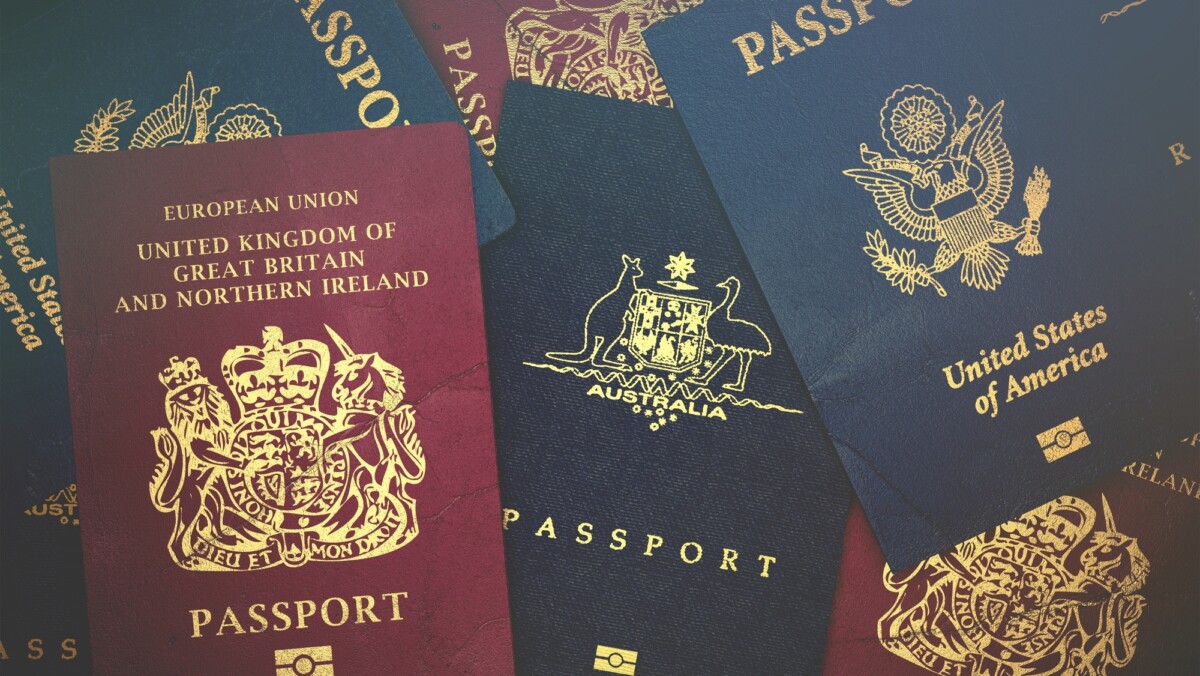Wealthtender is a trusted, independent financial directory and educational resource governed by our strict Editorial Policy, Integrity Standards, and Terms of Use. While we receive compensation from featured professionals (a natural conflict of interest), we always operate with integrity and transparency to earn your trust. Wealthtender is not a client of these providers. ➡️ Find a Local Advisor | 🎯 Find a Specialist Advisor

For most people, investing revolves around stocks, bonds, and real estate. But the asset you acquire in the realm of citizenship by investment is very different. It can fit in your pocket, has a picture of your face on the front, and grants you access to newfound freedom and security…
That’s right, this increasingly popular form of investment migration allows investors to purchase a passport from another country, as well as the right to call it home. In this article, we’ll discuss precisely what the practice involves, cover its associated pros and cons, and detail 5 citizenship by investment programs available today.
What Is Citizenship by Investment?
Citizenship by investment (CBI) programs enable affluent individuals to acquire dual citizenship. It’s essentially a trade with the nation’s government: money for access. In exchange for sizeable economic contributions, the applicant earns the right to live and work in the host country if they ever choose to.
Some CBI programs involve a naturalization period before the investor can make a citizenship application. Others, though, pave a direct route to it.

How Much Does Citizenship by Investment Cost?
The cost of CBI programs varies by location. For example, some smaller nations, such as Moldova, St. Lucia, Anguilla, or Antigua and Barbuda, require a relatively small investment of $100,000. Others, such as Austria and the Cayman Islands, can run into the millions.
The Benefits of Citizenship by Investment
CBI programs present compelling benefits to both the countries offering them and the individuals using them. However, while the main appeal for each country is the money that pours in from foreign investors, the advantages to those receiving dual citizenship are more nuanced. Here are 5 ways they stand to gain:
1. Access to State Benefits
Acquiring dual citizenship grants access to the basic services the host nation offers. This could involve healthcare, education, and transport benefits, among others – some of which may be cheaper and/or of a higher standard than what you get at “home.” Ultimately, your overall quality of life stands to improve.
2. Ease of Travel/Mobility
Citizens of developed countries like the USA take for granted the power held in their passports. That little book gives them access to 186 countries – without needing a visa. Compare that to someone from Afghanistan, who can only visit 27.
Thus, for many people, obtaining dual citizenship via a CBI program is tantamount to buying a “master key” to the world. It opens the door to new destinations.
3. Tax Breaks and Buying Power
The biggest beneficiary of dual citizenship could be your bank balance. For instance, becoming a tax resident of countries like Antigua and Barbuda, located in the Caribbean, entitles you to lower tax rates and improved tax efficiency.
Not only that, but your home currency may also have greater buying power in the new location. As such, anything you earned at home would stretch much further there, enabling you to acquire new assets at bargain prices.
4. Access to New Markets
Imagine being a business owner who wants to extend their operation to new markets. That task is exponentially easier if you’re classed as a citizen instead of a foreign investor.
As a result, CBI programs pave the way to surging sales and new business opportunities – a potent combination when you factor in the currency benefits we mentioned above.
5. Newfound Safety and Security
Not everyone has the good fortune to live somewhere peaceful and prosperous, where natural disasters haven’t had cataclysmic effects, or where famine hasn’t threatened their family’s welfare. In such situations, becoming a citizen by investment is a ticket – albeit an expensive one – to safety.
All of a sudden, you have the freedom to leave whatever problems have befallen your home country. Better still, you can re-enter it as soon as they blow over.

Two Pitfalls of Citizenship by Investment
There are two sides to every story, right? Although there are undeniable benefits to CBI programs, there are downsides to consider as well. Here are two of the main issues to keep in mind:
1. The Cost and Application Process
The primary disadvantage comes down to price. With prices starting from around $100,000 and often running into 7 figures, these programs certainly aren’t cheap; unavoidable fees make them even more expensive. To avoid disappointment, investors must be certain they’ve selected the best one for their needs.
Furthermore, the application process itself can be lengthy and complicated. Expect criminal record checks, references, and health checks to be completed – all of which take time to process. Our advice? Hire a skilled advisor for digital nomads or expats who can walk you through it from start to finish.
2. Residency Requirements
With notable exceptions (such as Cyprus and Grenada), many CBI programs require applicants to be a resident of the country for a set amount of time before they’re eligible for citizenship and the benefits it entails. Some nations also require that you spend many months within their borders each year.
Needless to say, this is an important consideration for anyone whose professional or personal life would make it impossible to have such extended absences from home.
Examples of Five Citizenship by Investment Programs Available Today
Such is the burgeoning popularity of these programs that it would take too long to list every CBI opportunity out there. To give you a sense of what’s available, though, here are 5 programs from around the globe to consider availing of:
1. Anguilla
Located in the Eastern Caribbean, Anguilla offers permanent residency with the potential for British citizenship after 5 years. The minimum investment is $150,000 per single applicant. Spouses or dependents cost an extra $50,000.
2. Antigua and Barbuda
Another CBI opportunity in the Caribbean, the Antigua and Barbuda program is one of the cheapest for families seeking dual citizenship. The minimum investment required is $100,000, which is the same for both a single applicant and a family of 4.
3. Cayman Islands
A British Overseas Territory in the Western Caribbean, the Cayman Islands is the epitome of a tax haven. Their permanent residency program paves the way to future naturalization and citizenship, but it’ll set you back a minimum of $2.4 million.
4. Ireland
If you have legally acquired a net worth of at least €2 million and invest €1 million, you can gain Irish residency that can lead to citizenship after half a decade. Strict residency rules apply.
5. Vanuatu
Located in the Pacific Ocean, this chain of islands requires a minimum investment of $130,000 plus fees for a single applicant. Processing is fast, and if successful, you can enjoy visa-free travel to 96 countries.
Time to Pursue Citizenship by Investment?
Citizenship by investment is growing in appeal among affluent individuals seeking greater mobility, tax savings, and the many other perks of dual citizenship. With any luck, the insights above have shed light on the topic and how you’d gain from taking advantage of the available programs.
Find a Financial Advisor
Do you have questions about your financial future? An experienced financial advisor can help you enjoy life more with less money stress. Get to know financial advisors who may be a good fit for you by visiting Wealthtender’s free advisor directory.
Whether you’re looking for a specialist advisor who can work with you online or a nearby financial planner, you deserve to work with a professional who understands your unique circumstances.
Author Bio
Danny is a digital nomad, freelance writer, and travel enthusiast who’s determined to make the most of his life. His new website, wisehealthynwealthy.com, is full of useful resources on a wide range of topics to help you do the same.
More Articles from Wealthtender:
Wealthtender is a trusted, independent financial directory and educational resource governed by our strict Editorial Policy, Integrity Standards, and Terms of Use. While we receive compensation from featured professionals (a natural conflict of interest), we always operate with integrity and transparency to earn your trust. Wealthtender is not a client of these providers. ➡️ Find a Local Advisor | 🎯 Find a Specialist Advisor

